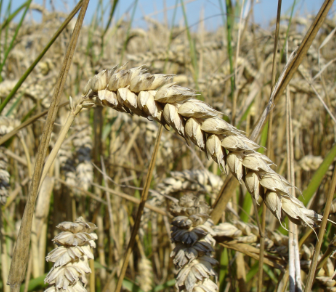Increasing levels of Carbon dioxide and Wheat productivity
Scientists are worried over sustaining food production and productivity of major crops like wheat, paddy, and maize due to the increasing levels of carbon dioxide. Studies have shown that even though increased carbon dioxide levels stimulate wheat productivity, the consequent rise in temperatures would have a negative impact.
There has been optimism in tropical countries like Greenland, Canada, Northern China and Europe where annual temperatures are currently well below the optimum range for the growth of wheat and an increase in temperature would be beneficial to them with a possibility of a hike in wheat productivity. Whereas in tropical countries like India there is heightened concern as it is already hot enough and further rises in temperature could prove disastrous.
Study by Indian Institute of Technology- Kharagpur
The Indian Institute of Technology- Kharagpur explored the possibility of nutrient management as a way to sustain wheat productivity even at higher concentrations of carbon dioxide by creating an artificial carbon dioxide-rich environment and applied different levels of nitrogen to wheat crop along with the recommended dosage of fertilizers. The findings of the study are:
- Wheat yield and growth parameters improved with increasing levels of nitrogen application despite elevated carbon dioxide conditions and higher temperatures.
- Under ambient carbon dioxide concentration, increasing the dosage of nitrogen did not bring any improvement in growth and yield of the crop.
- Elevated carbon dioxide levels increased crop growth rate and the fraction of leaf biomass and leaf nitrogen, especially with the nitrogen management using chemical fertilizer.
The study concludes that Wheat production under the elevated carbon dioxide environment in Eastern India might be maintained or improved through the normal and increased dose of nitrogen fertilizer application. However, there is a need for larger studies on the field with multi-location trials using different varieties, before any firm conclusion can be reached.
Month: Current Affairs - March, 2019


